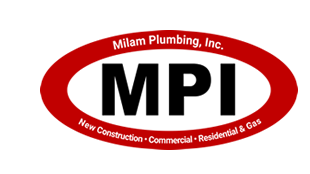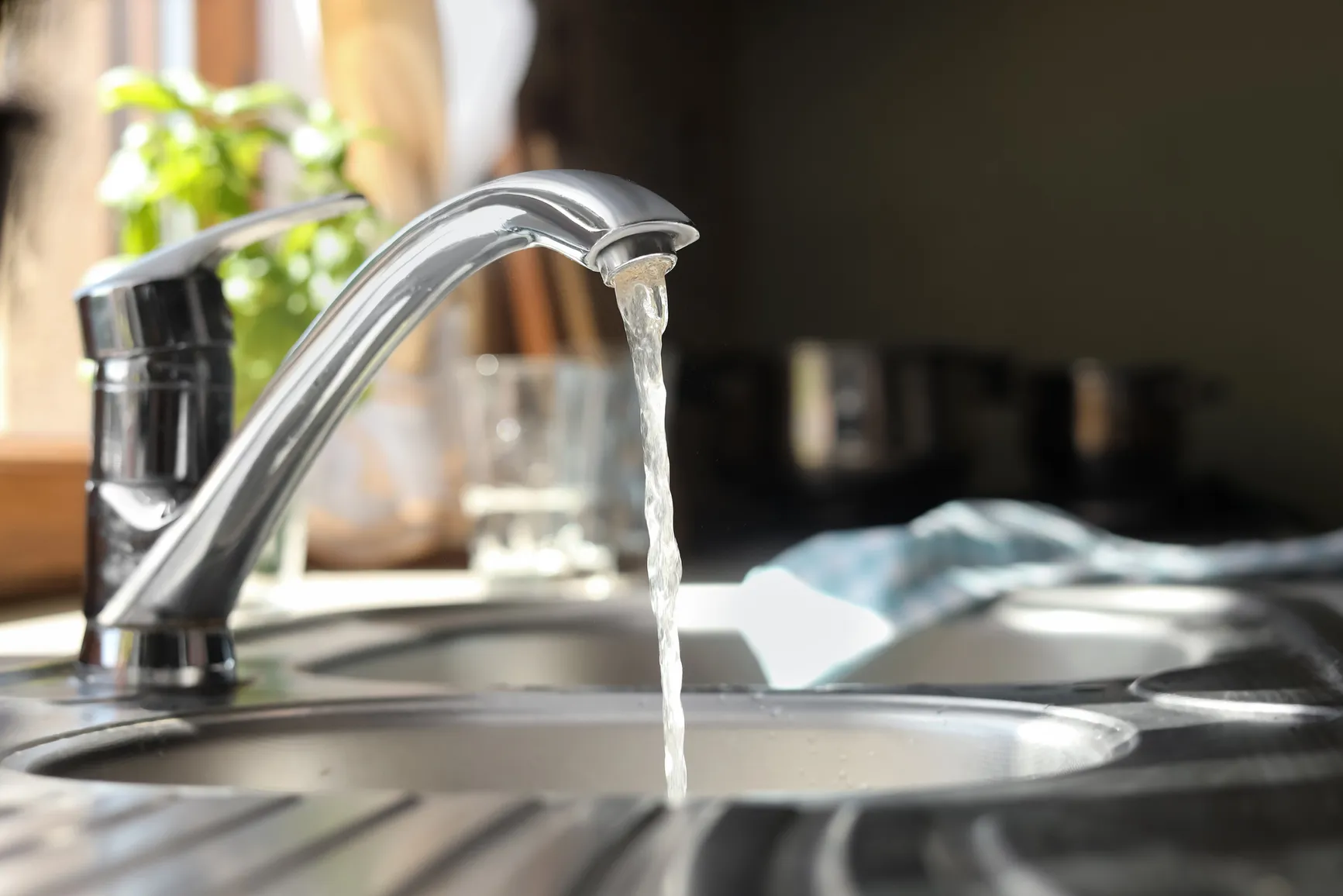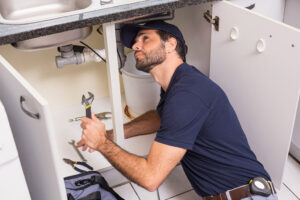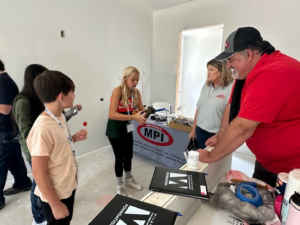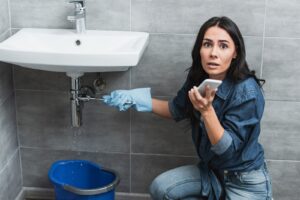Did you know that the quality of water in your home could be silently damaging your plumbing and even affecting your health?”
Many homeowners in Wilmington, NC, are unaware of how their water quality can impact both their plumbing systems and overall health. While we often think of plumbing problems as only involving leaks or clogs, the condition of the water flowing through our pipes plays a huge role in the longevity of our plumbing and the well-being of our families. In Wilmington, where water comes primarily from the Cape Fear River, the quality of the water may contain various contaminants that can lead to plumbing issues and pose health risks.
In this article, we’ll explore the water quality in Wilmington and how it affects your plumbing system and health. We’ll also provide actionable tips to help you safeguard both your plumbing and your family from water-related issues.
Understanding Water Quality in Wilmington, NC
Wilmington’s primary water source is the Cape Fear River, which supplies the city’s local water treatment facilities. The city has invested heavily in water treatment technology to ensure safe, clean water for its residents. However, despite the advanced filtration processes, there are still some naturally occurring substances in the water, as well as potential contaminants from industrial, agricultural, and household sources.
Water traveling from the river to your home can pass through various stages of treatment, including filtration and disinfection, designed to remove harmful contaminants. But depending on your location and the age of your plumbing, some issues could persist.
Common Water Contaminants in the Region
While Wilmington’s water treatment facilities meet federal and state standards, common contaminants can still affect your plumbing and health:
- Hard Water: Wilmington’s water is considered moderately hard, meaning it contains high levels of minerals like calcium and magnesium. Over time, these minerals can cause scaling inside your pipes and appliances, leading to clogs, reduced water pressure, and higher energy costs due to the inefficiency of your water heaters and dishwashers.
- Chlorine: Used to disinfect the water during treatment, chlorine can contribute to the corrosion of metal pipes, faucets, and fixtures, shortening their lifespan. It also leaves a distinctive smell and taste that many residents find unpleasant.
- Lead: While lead in Wilmington’s water is not widespread, older homes and buildings with lead-based plumbing or fixtures may be at risk of lead contamination, which can pose serious health risks, especially to young children and pregnant women.
- Sediment: Wilmington’s water supply can contain sediments, such as sand and silt, that can clog pipes and faucets, leading to water pressure issues and potential damage to your plumbing system over time.
Wilmington’s Water Quality Report
Every year, Wilmington publishes a Water Quality Report, which provides an in-depth analysis of the city’s drinking water. This report details the levels of contaminants detected in the local water supply, compares these levels to federal safety standards, and offers valuable information about potential risks.
In recent years, some residents have raised concerns about the presence of chlorine byproducts, as well as the condition of aging infrastructure that may contribute to the contamination of water as it travels through pipes. This is especially concerning for those living in older homes with outdated plumbing systems that may not be as resistant to corrosion.
The report also includes testing results for various contaminants, such as lead and arsenic, which are regulated by the Environmental Protection Agency (EPA). While the levels of these contaminants are typically below the federal threshold, ongoing concerns about water quality emphasize the importance of staying informed and proactive when it comes to water safety.
How Water Quality Affects Your Plumbing System
- Impact of Hard Water on Plumbing
- Define hard water and its impact on plumbing systems (scale buildup, clogging pipes, reduced water pressure).
- Common issues caused by hard water, such as damaged water heaters, reduced appliance lifespan (dishwashers, washing machines).
- Corrosion and Pipe Damage from Contaminants
- How contaminants like chlorine and acidic water can cause corrosion of metal pipes over time.
- Effects of lead and other harmful chemicals on older plumbing systems, particularly in older homes or buildings in Wilmington.
- Sediment and Clogs
- Discuss how sediment in water (sand, silt, etc.) can cause blockages in pipes, faucets, and appliances.
- Preventative measures, such as installing sediment filters.
How Poor Water Quality Affects Your Health
Water that flows through your plumbing system can carry more than just minerals and contaminants—it can carry harmful chemicals that pose a threat to your health. Some of the most common contaminants in Wilmington’s water supply include:
- Chlorine: While chlorine is essential for disinfecting water during treatment, prolonged exposure to it can lead to skin irritation, rashes, and dry skin. For those with sensitive skin or respiratory conditions like asthma, chlorine exposure can worsen symptoms. Furthermore, when chlorine reacts with organic matter in the water, it can form byproducts such as trihalomethanes (THMs), which have been linked to an increased risk of certain cancers with long-term exposure.
- Lead: Lead exposure is particularly dangerous for young children and pregnant women. Even low levels of lead in drinking water can cause developmental delays, learning disabilities, and behavioral problems in children. In adults, long-term lead exposure is associated with high blood pressure, kidney damage, and neurological issues. Lead poisoning is particularly concerning in homes built before the 1980s, where plumbing fixtures may contain lead.
- Sediment and Particulates: While sediment itself may not pose an immediate danger, the presence of particles like sand and silt in the water can irritate the digestive system and lead to discomfort. Furthermore, these particulates can serve as carriers for harmful bacteria or viruses that can make people sick.
Specific Concerns for Vulnerable Populations
Certain groups of people are more susceptible to the harmful effects of poor water quality:
- Children: As mentioned earlier, lead exposure is especially harmful to children, as their bodies are still developing. Contaminants like chlorine can also irritate young skin, leading to rashes or other skin conditions. Ingesting contaminated water may even contribute to gastrointestinal issues, which are more severe in children due to their smaller size and developing immune systems.
- Elderly Individuals: Older adults often have weaker immune systems, making them more vulnerable to waterborne illnesses, such as bacterial or viral infections. Exposure to chemicals in the water can also exacerbate existing health conditions, such as asthma, heart disease, or kidney problems.
- Those with Compromised Immune Systems: Individuals who are immunocompromised due to conditions like HIV/AIDS, undergoing chemotherapy, or taking immunosuppressant medications are at a higher risk of infection from waterborne pathogens. Poor water quality can result in bacteria or viruses that may be harmless to the general population but could cause serious illness in these vulnerable individuals.
The Role of Water Quality in Waterborne Diseases
Poor water quality can also introduce waterborne diseases, which are illnesses caused by harmful microorganisms in the water. While Wilmington’s water treatment plants use extensive filtration and disinfection methods to minimize the risk of these diseases, problems can arise, especially if the water is improperly treated or if there are issues with the distribution system.
- Bacteria: Contaminated water can harbor harmful bacteria such as E. coli, which can lead to severe gastrointestinal issues, including diarrhea, nausea, and vomiting. E. coli outbreaks are a serious health concern, particularly for children and the elderly.
- Viruses: Viruses like norovirus and hepatitis A can also be present in untreated or poorly treated water. Exposure to these viruses can lead to flu-like symptoms, liver damage, or more severe health complications.
- Parasites: Giardia and Cryptosporidium are two common waterborne parasites that can lead to intestinal infections. These parasites can survive in untreated water and cause symptoms like stomach cramps, diarrhea, and dehydration.
Ensuring that the water in your home is properly filtered and disinfected is essential to prevent these waterborne diseases. If you have concerns about the quality of your water, investing in a high-quality water filtration system may be a wise choice to protect your family from these harmful pathogens.
Long-Term Health Effects of Contaminated Water
Exposure to harmful chemicals and heavy metals over long periods can have serious, lasting effects on your health.
- Heavy Metals: Prolonged exposure to substances like lead, arsenic, and mercury can accumulate in the body and lead to chronic health problems. For example, long-term lead exposure has been linked to kidney disease, high blood pressure, and cardiovascular issues. Arsenic is a known carcinogen, and prolonged exposure can increase the risk of skin, lung, and bladder cancer.
- Cancer: There is growing evidence linking water contaminants like trihalomethanes (THMs), found in chlorinated water, to an increased risk of certain cancers, such as bladder and colorectal cancer. Chronic exposure to chemicals in drinking water, particularly when combined with other environmental factors, can increase the likelihood of developing these and other serious health conditions.
- Kidney Disease: Chemicals such as lead and mercury can cause significant damage to the kidneys over time. These organs are responsible for filtering out toxins from the body, and when they are compromised by prolonged exposure to harmful substances, kidney disease can develop.
While not all Wilmington residents may be exposed to harmful levels of contaminants, the long-term effects of poor water quality make it essential for homeowners to stay vigilant. Using filters, staying informed on the latest water quality reports, and maintaining your plumbing system can help reduce health risks associated with contaminated water.
In the next section, we will explore practical steps Wilmington residents can take to improve their water quality, safeguard their plumbing, and protect the health of their families.
How to Protect Your Plumbing and Health in Wilmington
Water Filtration Systems
One of the most effective ways to improve water quality and protect your health and plumbing system is by installing a water filtration system. There are several types of filtration systems, each offering unique benefits:
- Whole-House Water Filtration Systems: These systems filter water at the point of entry into your home, ensuring that every tap, shower, and appliance receives purified water. Whole-house filters can remove a wide range of contaminants, including chlorine, sediment, heavy metals, and other impurities that may affect both your plumbing and health. Installing a whole-house system can help reduce the buildup of mineral deposits in your pipes, extending the life of your plumbing and appliances.
- Reverse Osmosis (RO) Systems: RO systems are often used for drinking water and under-sink applications. These systems use a semi-permeable membrane to remove dissolved solids, bacteria, viruses, and other harmful contaminants from water. An RO system is particularly beneficial for homes with high levels of dissolved solids, lead, or other hazardous substances that could impact both your health and plumbing.
- Water Softeners: If you live in an area with hard water (a common issue in Wilmington), a water softener can help prevent the buildup of limescale and mineral deposits inside pipes, faucets, and appliances. This not only helps extend the life of your plumbing but also improves the quality of your water, preventing skin irritation and other issues associated with hard water.
Benefits of Installing Water Filtration Systems:
- Protects Your Plumbing: Filtration systems reduce the accumulation of mineral deposits, corrosion, and sediment, which can clog pipes and damage appliances.
- Improves Health: By removing harmful contaminants like chlorine, lead, and bacteria, filtration systems ensure the water you drink, bathe in, and cook with is safe and healthy.
- Cost Savings: Installing a filtration system can save money in the long term by reducing the need for plumbing repairs and appliance replacements caused by water damage.
Regular Plumbing Maintenance and Inspections
One of the most important steps in protecting both your plumbing and health is conducting regular plumbing maintenance and inspections. Over time, plumbing systems can develop issues such as corrosion, leaks, or mineral buildup that may not be immediately obvious.
- Importance of Regular Inspections: Plumbing systems in Wilmington homes are susceptible to wear and tear from exposure to poor water quality. Regular inspections help identify problems like rusted pipes, leaks, and signs of corrosion before they become costly, disruptive issues. Catching small problems early can prevent major plumbing repairs or replacements down the road.
- Pipe Descaling: Homes with hard water may experience limescale buildup inside pipes. This buildup can clog pipes and restrict water flow, making your plumbing system less efficient. Professional plumbers can perform pipe descaling to remove mineral deposits and restore optimal water flow.
- Water Treatment System Maintenance: If you have installed a water filtration system, it is essential to maintain it regularly to ensure its effectiveness. Filters, membranes, and other components may need to be replaced periodically. Professional plumbing services can help ensure that your water treatment system continues to perform at its best, protecting both your health and your plumbing.
- Plumbing Check-Ups: In addition to water treatment, routine plumbing check-ups help identify potential leaks, broken seals, or damage to pipes. Early detection of these issues can prevent water damage, mold growth, and other health hazards associated with plumbing problems.
Water Testing
Understanding the quality of the water coming into your home is crucial for ensuring both your health and the longevity of your plumbing system. Water testing is an essential part of maintaining good water quality.
- DIY Test Kits: Homeowners in Wilmington can use DIY water testing kits to check for common contaminants like lead, chlorine, hardness, and pH levels. These kits are easy to use and can provide valuable information about the quality of your water. However, they may not be as comprehensive as professional tests.
- Professional Water Testing Services: For a more thorough analysis of your water quality, consider hiring a professional water testing service. These services can test for a wider range of contaminants, including heavy metals, bacteria, and volatile organic compounds (VOCs), which may not be detectable with DIY kits.
- Interpreting Water Test Results: Once you have your water tested, understanding the results is crucial. Water test reports typically include information about the concentration of various contaminants and whether they exceed recommended safe levels. If harmful levels of contaminants are found, it’s important to take action, such as installing a filtration system or having your plumbing professionally treated to address the issues.
Using Certified Water Treatment Professionals
While DIY solutions can help manage some water quality concerns, the most effective way to safeguard both your plumbing and health is by working with certified water treatment professionals. These experts are trained to identify and address complex water quality issues, ensuring that your home receives the highest standard of care.
- Expert Guidance: A certified professional can help you choose the right water filtration system for your home, based on the specific contaminants present in your water. They can also provide advice on the best maintenance practices to extend the life of your plumbing and water treatment systems.
- Reputable Local Companies: In Wilmington, there are several reputable plumbing and water treatment companies that specialize in water filtration and maintenance. Some trusted options include:
- Milam Plumbing: Known for their comprehensive plumbing services, including water filtration installation and maintenance.
- Aqua Pro: Specializes in water purification and filtration solutions for residential properties.
- Wilmington Plumbing Company: Offers expert water testing and treatment services to help improve water quality and protect plumbing systems.
By hiring certified professionals to handle your water quality concerns, you can ensure that your home is protected from the harmful effects of poor water quality, while also safeguarding the integrity of your plumbing system.
The Benefits of Clean Water for Your Home and Family
Enhanced Plumbing System Longevity
Ensuring clean, high-quality water is essential for maintaining a healthy plumbing system and extending the lifespan of your pipes and appliances. Here’s how clean water contributes to a longer-lasting plumbing system:
- Prevents Corrosion and Rusting: Clean water, free from excessive chlorine, heavy metals, and acidic substances, prevents the corrosion of pipes. Corroded pipes can lead to leaks, water damage, and costly repairs.
- Reduces Scale Buildup: Hard water, which contains high levels of calcium and magnesium, can cause limescale buildup inside pipes and appliances. Over time, this buildup can obstruct water flow, reduce appliance efficiency, and eventually lead to system failures. Clean water helps prevent this scale buildup, reducing the need for frequent maintenance and repairs.
- Prevents Clogs: Water with high sediment levels can cause clogs in pipes, faucets, and appliances, leading to more frequent plumbing issues. By ensuring your water is clean, you can avoid these costly blockages and the need for frequent plumbing interventions.
By addressing water quality concerns early and consistently, homeowners can significantly extend the life of their plumbing system, saving money on repairs and replacements over the long term.
Improved Health and Well-Being
The benefits of clean water go beyond plumbing—safe, clean water directly contributes to your family’s health and well-being.
- Peace of Mind: Knowing that your water is free from harmful chemicals, bacteria, and heavy metals gives you peace of mind. You can confidently drink, bathe, and cook with water that is safe for you and your loved ones.
- Healthier Skin: Clean water is gentler on the skin, reducing irritation caused by chlorine or harsh minerals often found in untreated water. Many Wilmington residents report an improvement in skin conditions such as dryness or rashes after switching to filtered water.
- Fewer Illnesses: Contaminants like bacteria, lead, and chlorine can affect your health, leading to gastrointestinal issues, skin problems, and more severe long-term effects. Clean water helps reduce the risk of these health problems, allowing you to enjoy a healthier life overall.
- Better Quality of Life: Clean water improves your overall well-being, from ensuring that your water is safe to drink and cook with, to creating a cleaner and healthier home environment.
Ultimately, clean water promotes not just physical health, but also peace of mind and a better quality of life for you and your family.
Conclusion
Water quality plays a critical role in both the health of your plumbing system and the well-being of your family. By understanding the common contaminants that may affect Wilmington’s water supply—such as chlorine, lead, and hard water—you can take steps to safeguard your home and loved ones. Installing a water filtration system, scheduling regular plumbing inspections, and testing your water regularly are all proactive measures that will protect your plumbing system from damage and your family from health risks.
Concerned about the water quality in your home? Contact Milam Plumbing today for a professional water quality inspection and ensure your plumbing and your family’s health are protected. Don’t wait for the damage to escalate—take action now to safeguard your home and well-being.


